Greetings Corp and everyone;
Corporate Investigations wrote
In the context of Did the Jesuits of the old order own mines? No they did not need to.
It appears that you have reached your conclusions from having looked at the Rome end of the animal, which is not the whole picture. I don't wish to cast aspersions on your research, however I do not have a positive opinion of the Jesuit Order as a whole, nor of their history, and would not trust them to show anything to any non-Jesuit researcher which might cast a shadow on their image as an Order.
A Catholic study was done on the wealth of the Jesuits at the moment of their expulsion from Mexico, it is available on JSTOR. The title of it is
The Wealth of the Jesuits in Mexico. This compilation lists several mines which were owned OPENLY by the Jesuit Order, and in the footnotes you will find that some of the properties listed as "Haciendas" were really ore mills. Father Polzer admitted to "one incident" in which two padres were caught mining and were "punished", while another researcher (I think his name was West) found "one example" of another mine being worked by the padres.
The Jesuits definitely owned mines in Mexico, and we have reason to believe also had mines in almost every country in Latin America.
As to treasures - one example found and recovered was over
70,000,000 gold dollars, 2,800 pounds of gold dust and 20,000 pounds of gold ingots found with documents showing Jesuit father Anton Desarte, superior of the Jesuit college at Rio signed the receipts for this treasure, and that he was to pay 20.000.000 dollars to the king of Portugal, which would make sense as a royal fifth. A search done of the Jesuit missions of Baja California after the expulsion turned up over 7000 pesos in gold that had been hidden away, undeclared as was required by law.
The Jesuits never ever admit to any wrongdoing - yet ended up literally thrown out of almost every country on Earth at one time or another, some countries more than once; they were implicated in a string of assassinations and attempted assassinations, and were even suppressed "forever" by a Pope at one point, in which suppression document, the Pope hinted at the Jesuit's "unfortunate tendency to acquisitiveness". Vast fortunes were found being held in secret bank accounts in Holland after their suppression, and even during their suppression, the Order kept active in secret, founding Georgetown University in Maryland for example.
In nearly every country where Jesuit missionaries were active, we have legends of lost Jesuit mines and treasures; in some countries trying to get control of the precious metals mines was one of the first efforts done by the good padres, as happened in Japan, along with being implicated in trying to overthrow the Emperor. On being expelled from Japan, a number of Jesuits managed to sneak back into the country illegally. We won't even go into the even darker blots on their record, which disgusting revelations continue to turn up to this day.
We have had a lengthy discussion of this topic over several years, and the Jesuit apologists like father Polzer turn a blind eye to all evidence, and Polzer was of course a Jesuit. Some of the Jesuit mines have been found and are not lost today, like the Wandering Jew, the Montezuma or Old Padres in Arizona, the St Brigida mine in Sonora as examples. The fact that the king of Spain had to issue not one but repeated orders for the missionaries to STOP mining in his colonies, shows us how ineffective the enforcement of the laws really were. The crackdown in 1767 was hoped to catch them "with pants down" and reap the accumulated treasures, but the actual roundup was done in such a slow and plodding way, with word reaching ahead of the soldiers, and in some cases the padres were simply sent a message to come in (as happened in Arizona) the sting operation fell short. The fact that the Spanish authorities, and Portuguese in their dominions, or the French authorities in French colonial territories, all failed to turn up the hidden wealth of the Jesuits only proves that it was not possible to get the job done in that day. Modern historians have been puzzled by the piles of smelting slag found at Guevavi and Tumacacori, waste products of silver production, which predates the arrival of the Americans. Which brings up the last point.
The royal cedula forbidding the clergy from mining does not name ANY of the Orders operating in Mexico, for
they were ALL doing it. The Franciscans, the Dominicans, the Augustinians etc even the good sisters of a nunnery had a mine and smelter operation. The Franciscans whom replaced the Jesuits in Arizona wasted little time in trying to re-locate the hidden mines of the Jesuits, and expand the operation to the Colorado river where father Garces was "martyred" by the Indians there after they were forced to work as slaves mining gold. If the Jesuits were not guilty of mining, why then do the royal cedulas not list the guilty Orders, or mention that the Jesuits are innocent?
This modern revisionist attempt to whitewash the missionaries works, is puzzling and hardly a good thing. The Indians of the various villages of the missions were not free, they had to work three days per week for the padres; they could not leave the mission without permission of the padres, could not do business with any outsiders, all such business had to go through the padres. Failure to work, or work hard enough, was punished by whipping or the stocks among other possibilities. The padres were often operating well beyond the frontier of settlement by Spaniards, where their word was law and backed by Spanish soldiers as well as trusted Indios. Mining was only a part of their enterprises of course, and all missions were expected to become fully self-supporting, so a blind eye could be turned toward illegal mining by the padres in many cases. The fact that the Jesuits owned mines openly, and we have so much testimony about the Jesuits having secret mines, often from the very Indians whom were the members of the various Jesuit missions, while the apologists try to deny everything just flabbergasts me. How does that old saying go -
there is none so blind as he who will not see? For there should not be ANY such evidence that the Jesuits had or operated mines, according to father Polzer and the Jesuit apologists, yet we do have evidence that they certainly did.
I am sorry that you did not find the "smoking gun" in the Jesuit archives of Rome, but I doubt that such records would
ever be allowed to be seen by any non-Jesuit. I hope I have not bored you to tears, thank you for your time and I hope you all have a very pleasant evening.
Oroblanco










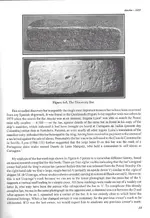
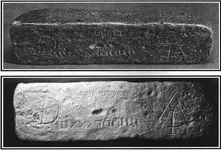
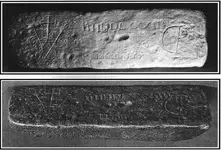
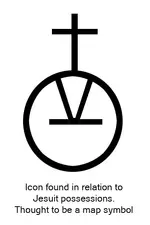
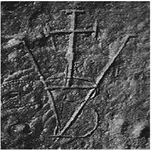
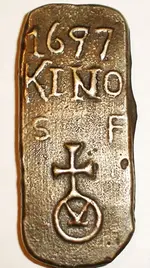
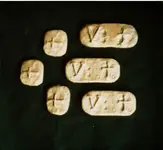
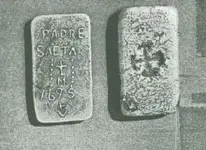

 ?
?  I agree 100% that it was more likely the Coadjutors whom were in charge of running the mines as well as other operations in the "temporal" realm, however they were (and are) still Jesuits. I doubt that the Indios made any distinction between the padres leading them in prayer and the lay brother ordering them to work; I don't see why we should make any distinctions either for the padres were in charge of the Coadjutors and in charge of all valuables.
I agree 100% that it was more likely the Coadjutors whom were in charge of running the mines as well as other operations in the "temporal" realm, however they were (and are) still Jesuits. I doubt that the Indios made any distinction between the padres leading them in prayer and the lay brother ordering them to work; I don't see why we should make any distinctions either for the padres were in charge of the Coadjutors and in charge of all valuables.